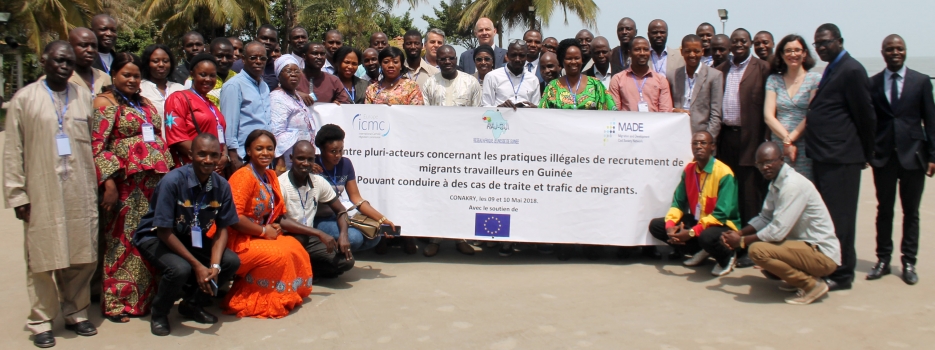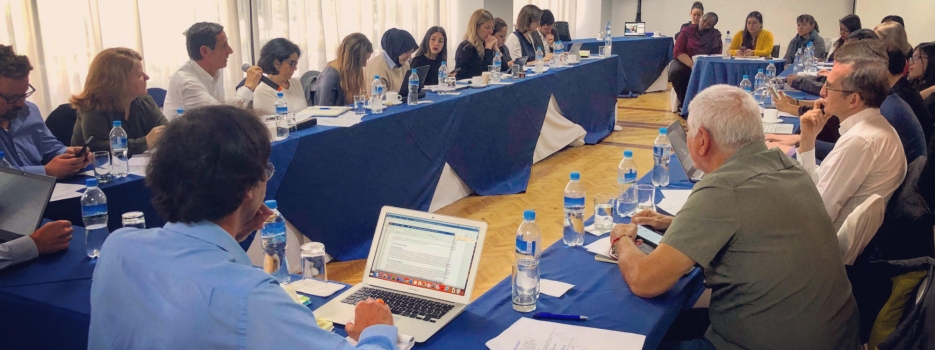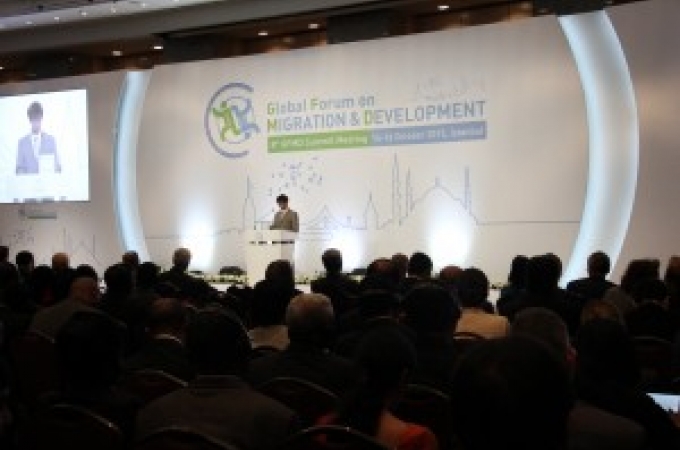22 October 2015
On October 14 2015 during the Opening Ceremony of the 2015 Global Forum on Migration and Development (GFMD) in Istanbul, Mr. Packer, Secretary General of Terre des Hommes International Federation and Chair of the 2015 Civil Society Days of the GFMD presented to 500 government delegates from more than 140 countries, some 300 leaders of civil society worldwide and high-level delegates from UN and international agencies, the key conclusions and recommendations stemming from the previous convening of civil society during two days.
Given the organizing of the GFMD in Turkey, particular attention was devoted to the current situation of Syrian refugees and other forced migrants both stuck and on the move in the Middle East, North Africa and Europe.
In his statement, Mr. Packer emphasized central civil society recommendations:
- On protecting children in the context of migration, among other things urging the US, now the only UN member state on the planet that has not ratified the Convention on the Rights of the Child, to do so.
- On responding to migrants in crisis, calling states to widen scope of effort beyond the current “countries” in crisis approach, to the “migrants” in crisis, improving – without delay – needs-first and rights-based responses to migrants in distress in transit, including opportunities for orderly, safe, regular and responsible migration.
- On implementing the newly adopted “2030 Sustainable Development Agenda”: welcoming the inclusion of explicit targets regarding migrants and migration in the new goals and noting the immediate task to take them forward into national policy, implementation and monitoring, with civil society directly involved.
- On respecting labour rights and conventions, including the 1990 UN Migrant Workers Convention: saying “Here is another good choice whose time has come: it’s high time for Europe to sign these conventions, together with other main countries of destination.”
- On reform of abusive migrant recruitment processes, commending concrete progress between international organisations and the private sector, among recruitment agencies themselves, particularly in Asia, and most recently ground-breaking legislation in the Gulf region; an issue on which “where governments and private businesses are increasingly recognizing the need to choose reforms and policy changes.”
- On fighting xenophobia: “The siege mentality fanned by an increasing number of populist leaders and by xenophobic media is disgraceful and dishonest. Society that is truly “civil” demands a new choice: to no longer play with—or surrender to–such intolerance.”
- On joined governance: expressing concern for policies drafted or passed in more than 60 countries since 2013 that shrink the space for civil society to engage meaningfully with governments on better solutions for migrants and refugees. “We claim a rightful place by demanding genuine participation in governance at local, national, regional and global levels. A place at the decision-making table, and co-responsibility.”
It is with “gentle optimism and fierce determination”, Packer noted, that civil society looks to the future. The new Sustainable Development Goals and their aim to “not leave anyone behind” – including migrants– give room for hope, a feeling which UN High Commissioner for Refugee Antonio Guterres shared in his own address to governments, citing migration as “part of the solution” to ongoing global challenges.
For more information:





